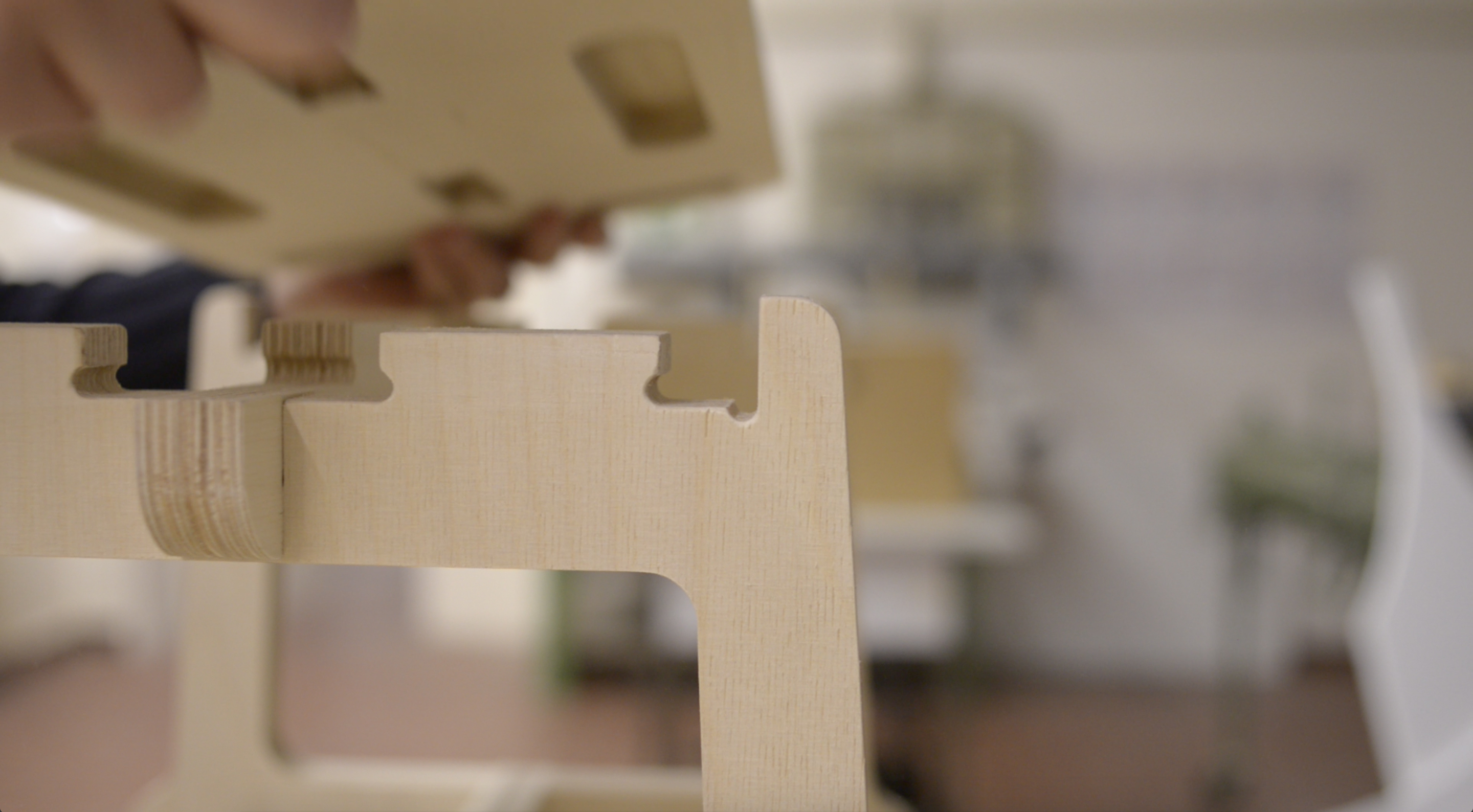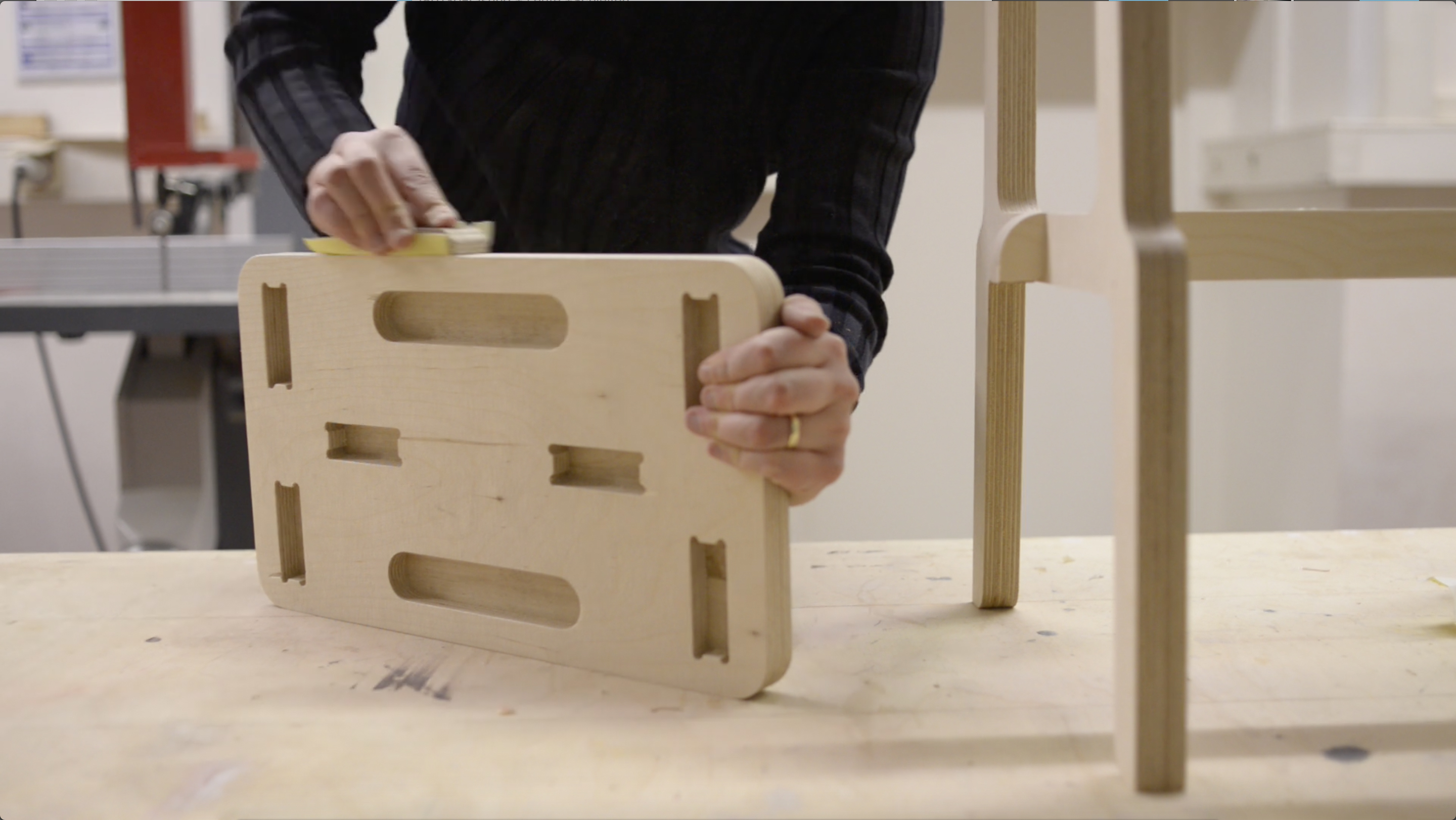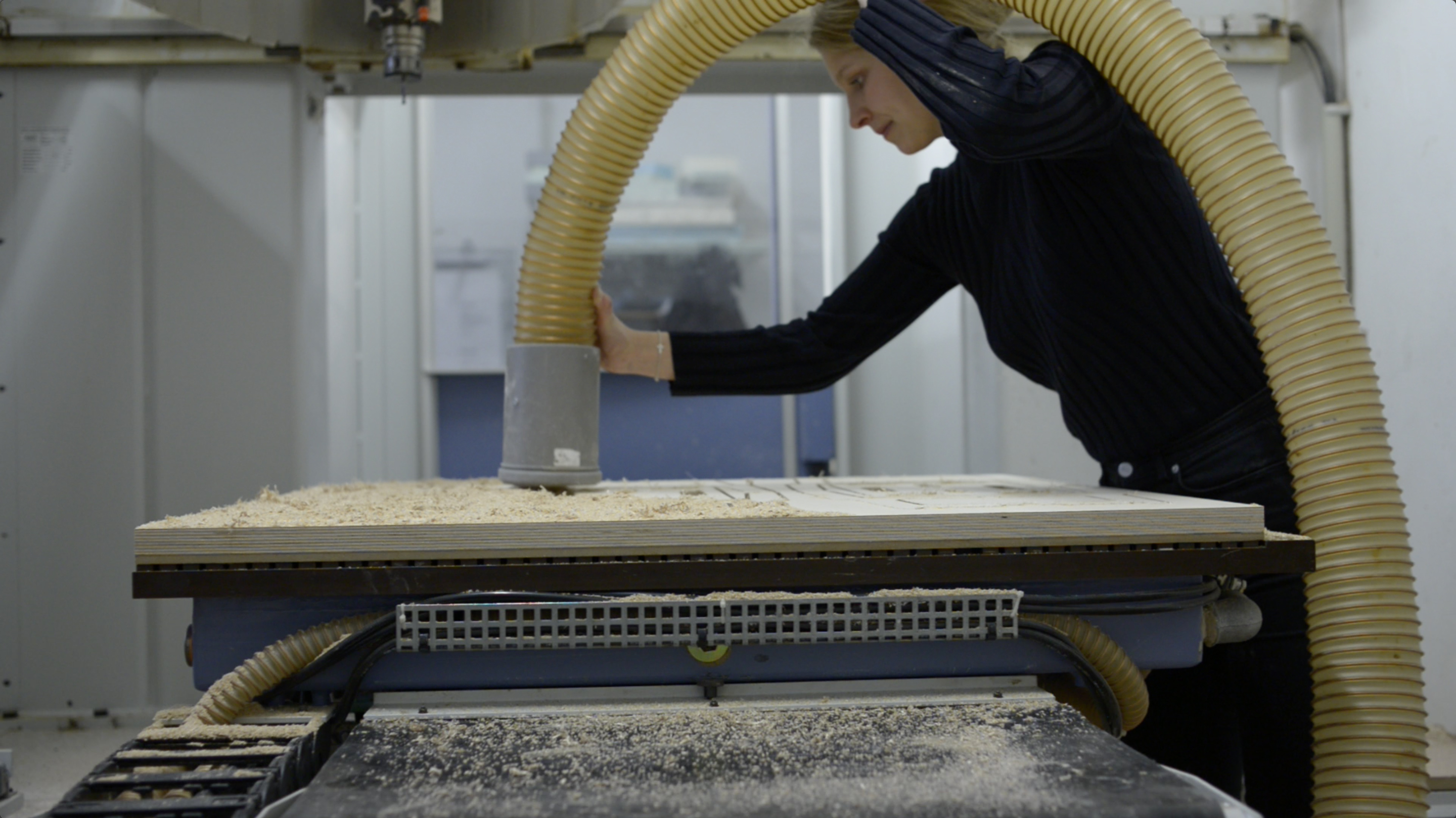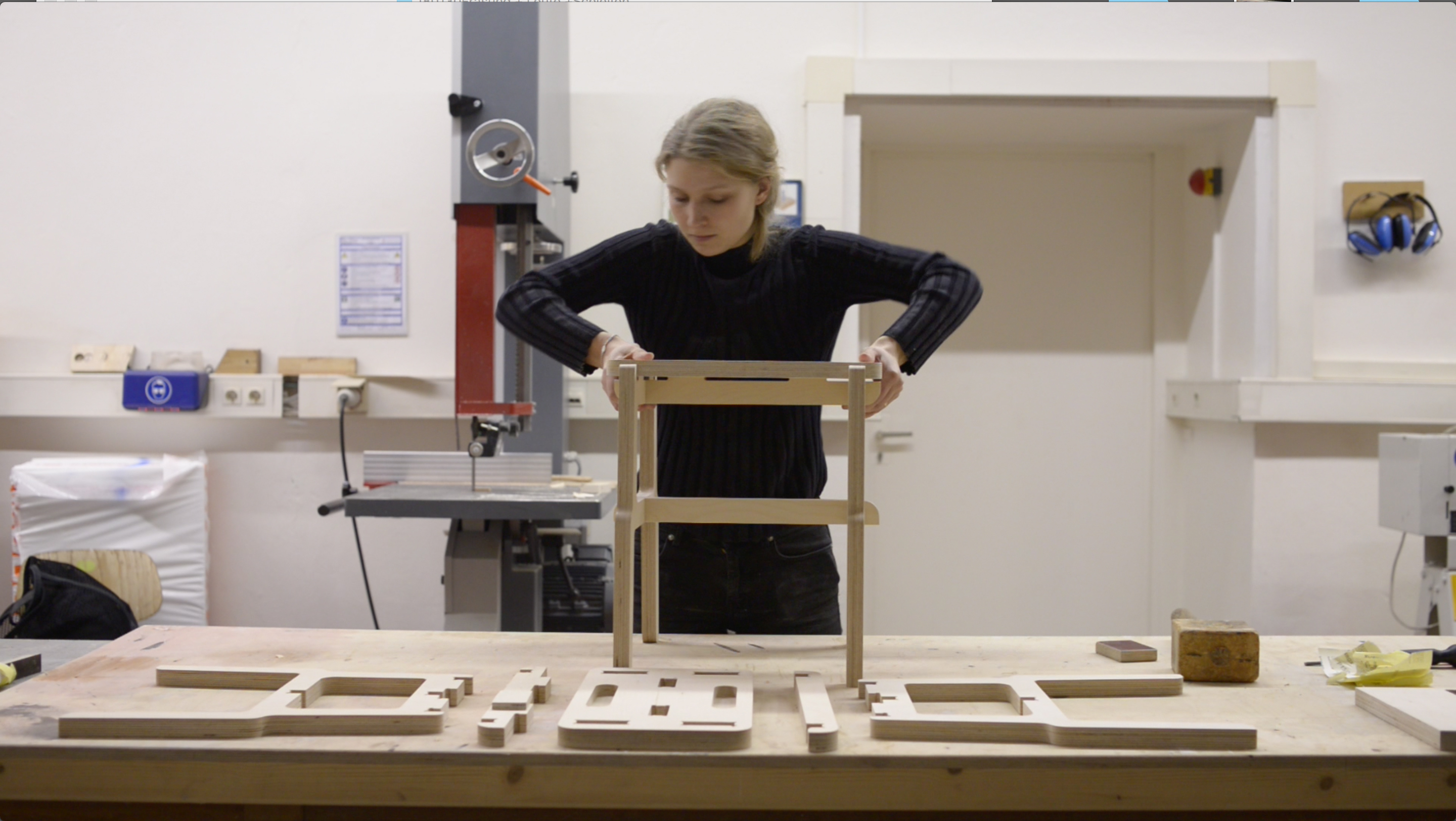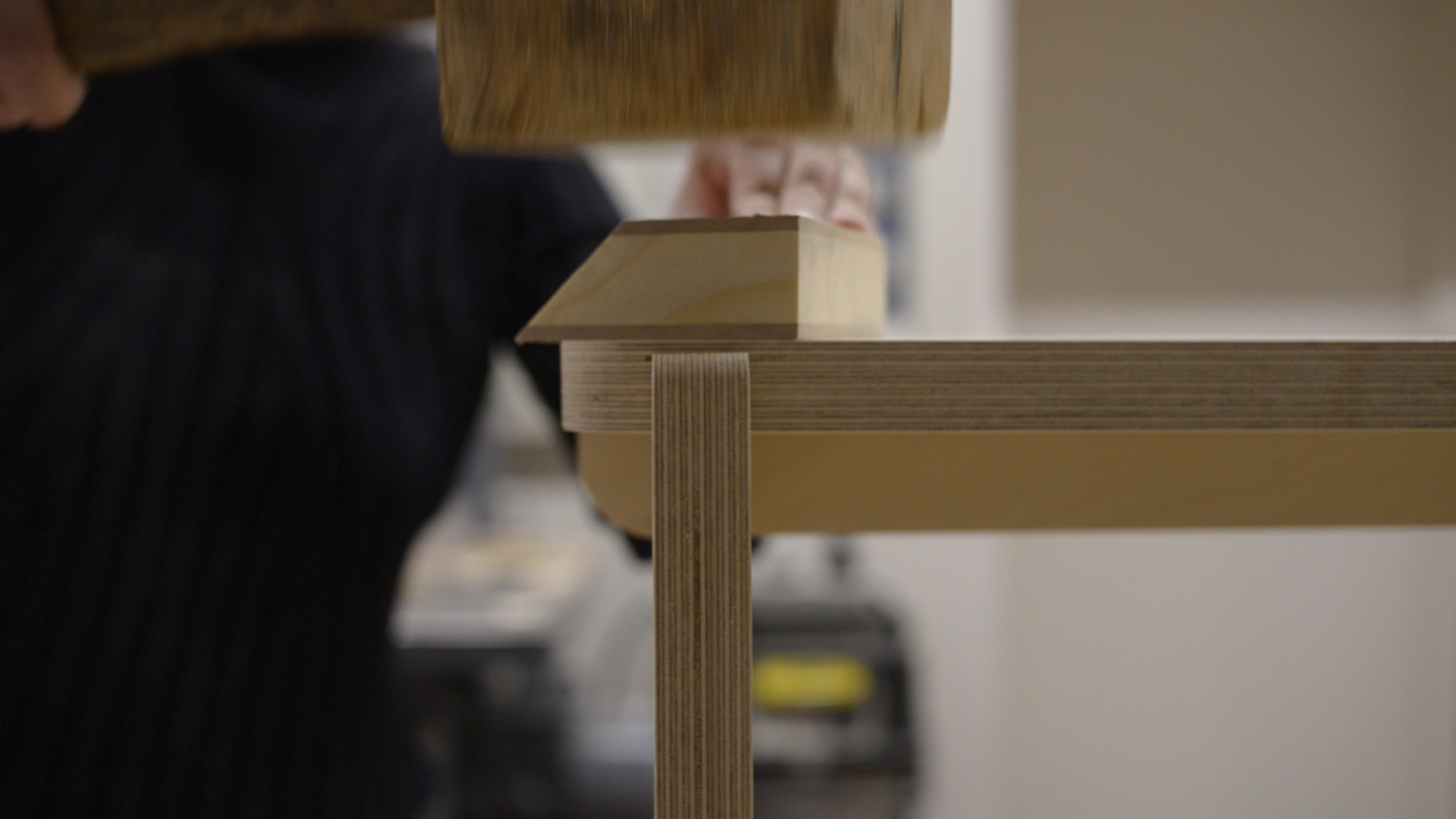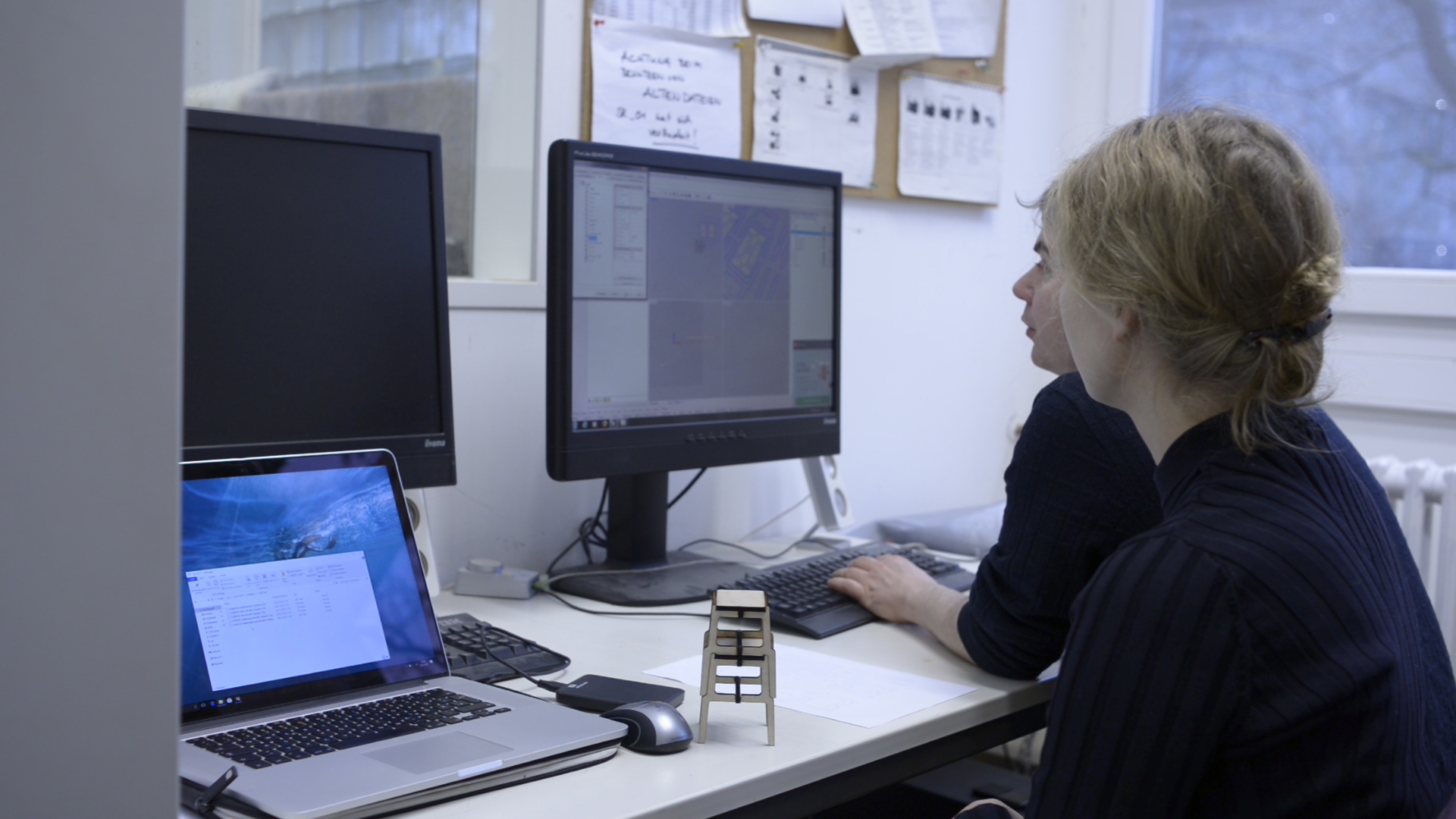Dilop
How does social interaction influence the design process?
While once rarity and uniqueness were the assessment standards for the quality of a product, many different aspects are currently open, considering the digitally networked society.
The draft, which is made available through open source software, is intended to give consumers access to their independent production.
The stool can be produced cost-effectively and in cooperation with local workshops in a material-saving, location-independent and transport-free manner. The consumer becomes part of the manufacturing process. This ensures economic, ecological and social sustainability.
Anna Koppmann, 3.sem WS 2017/18
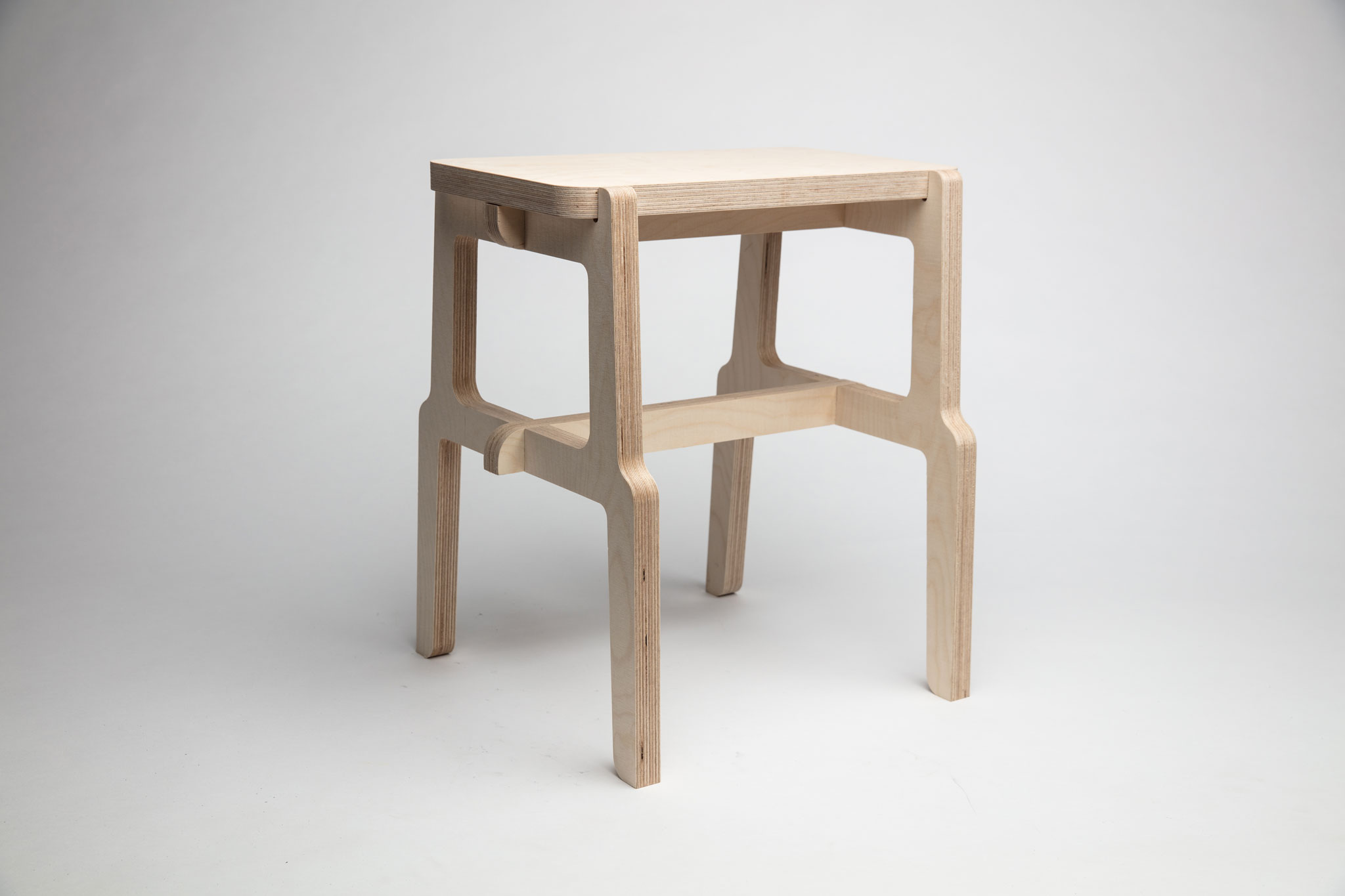
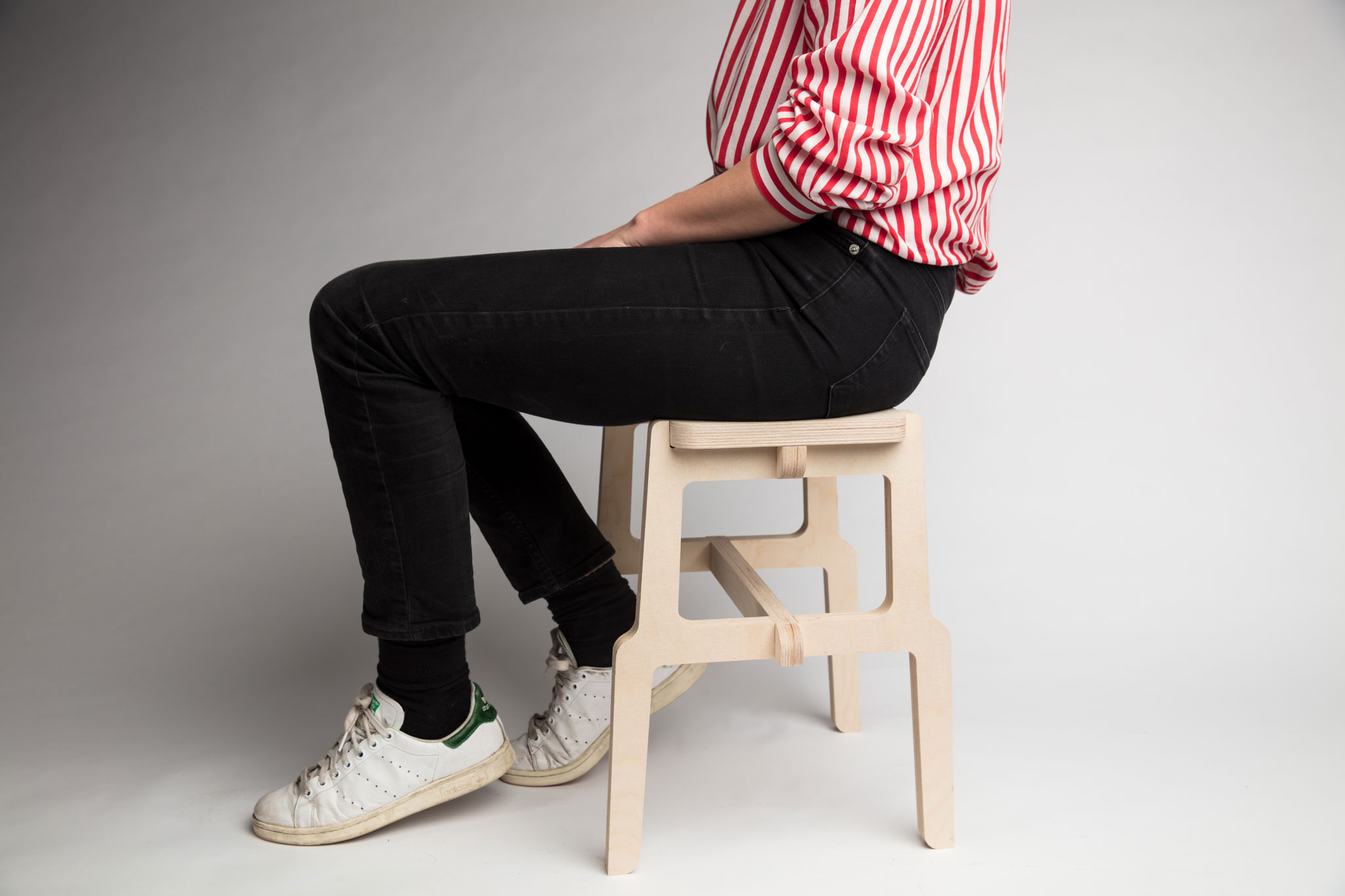
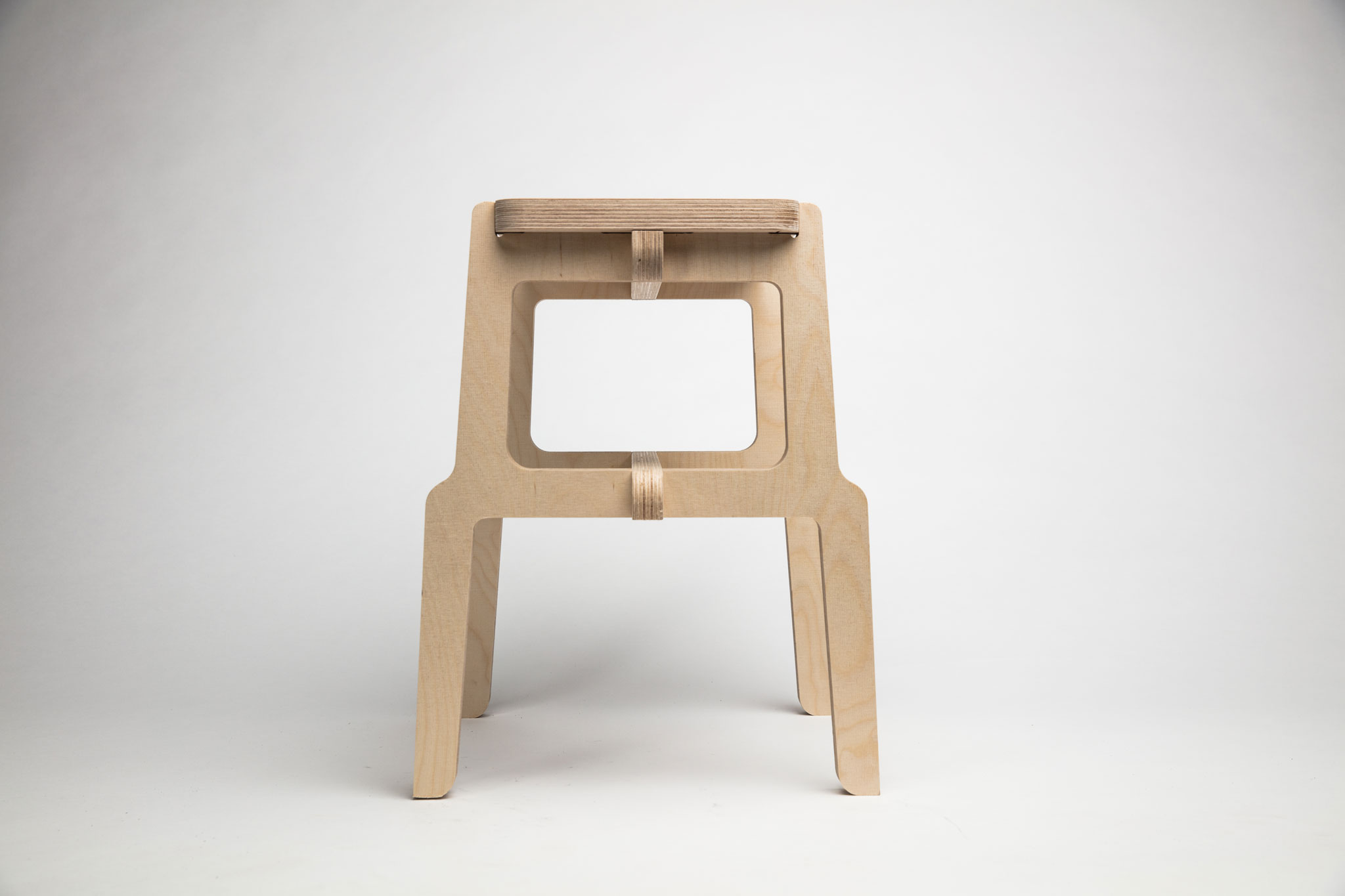
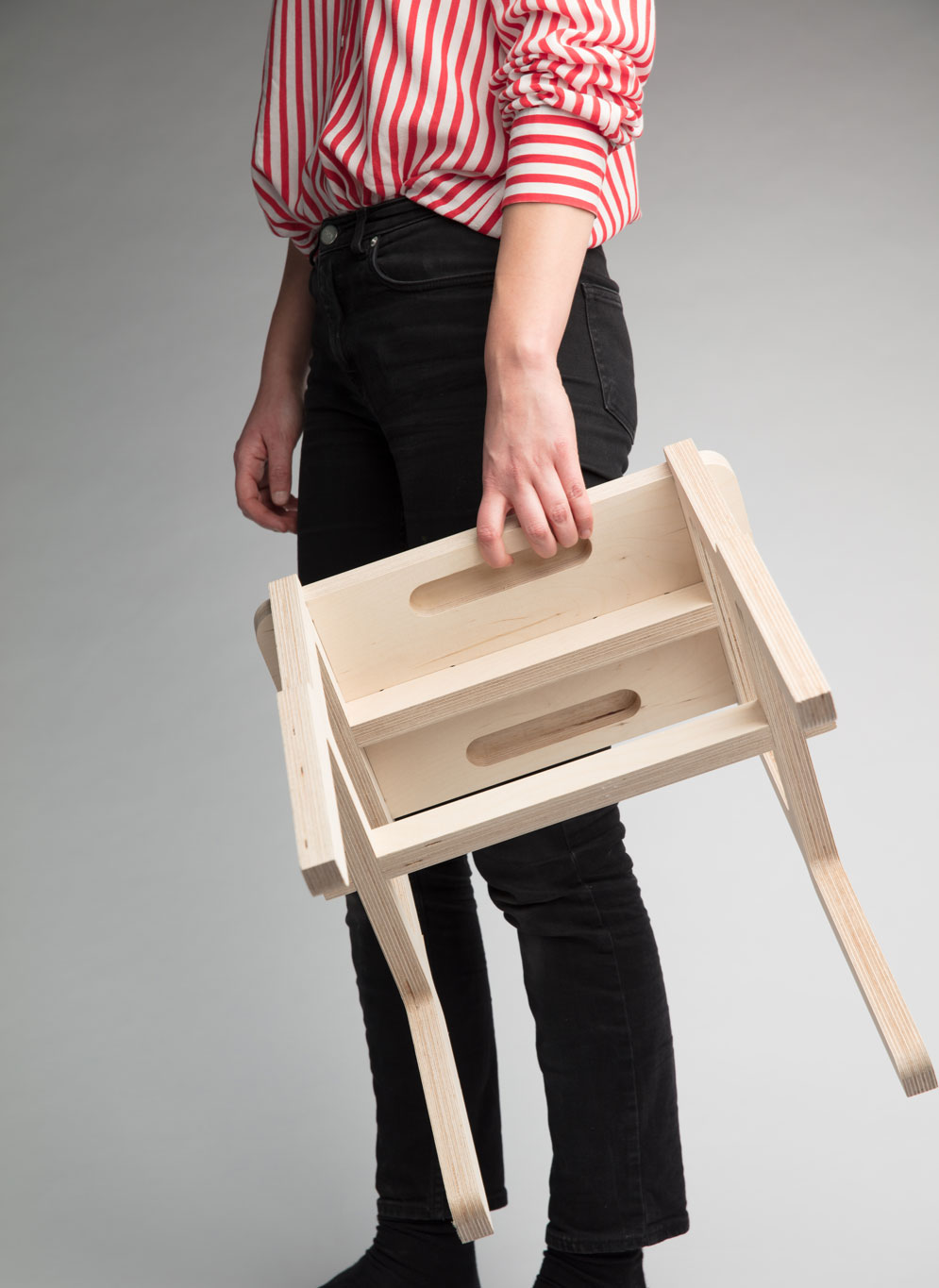
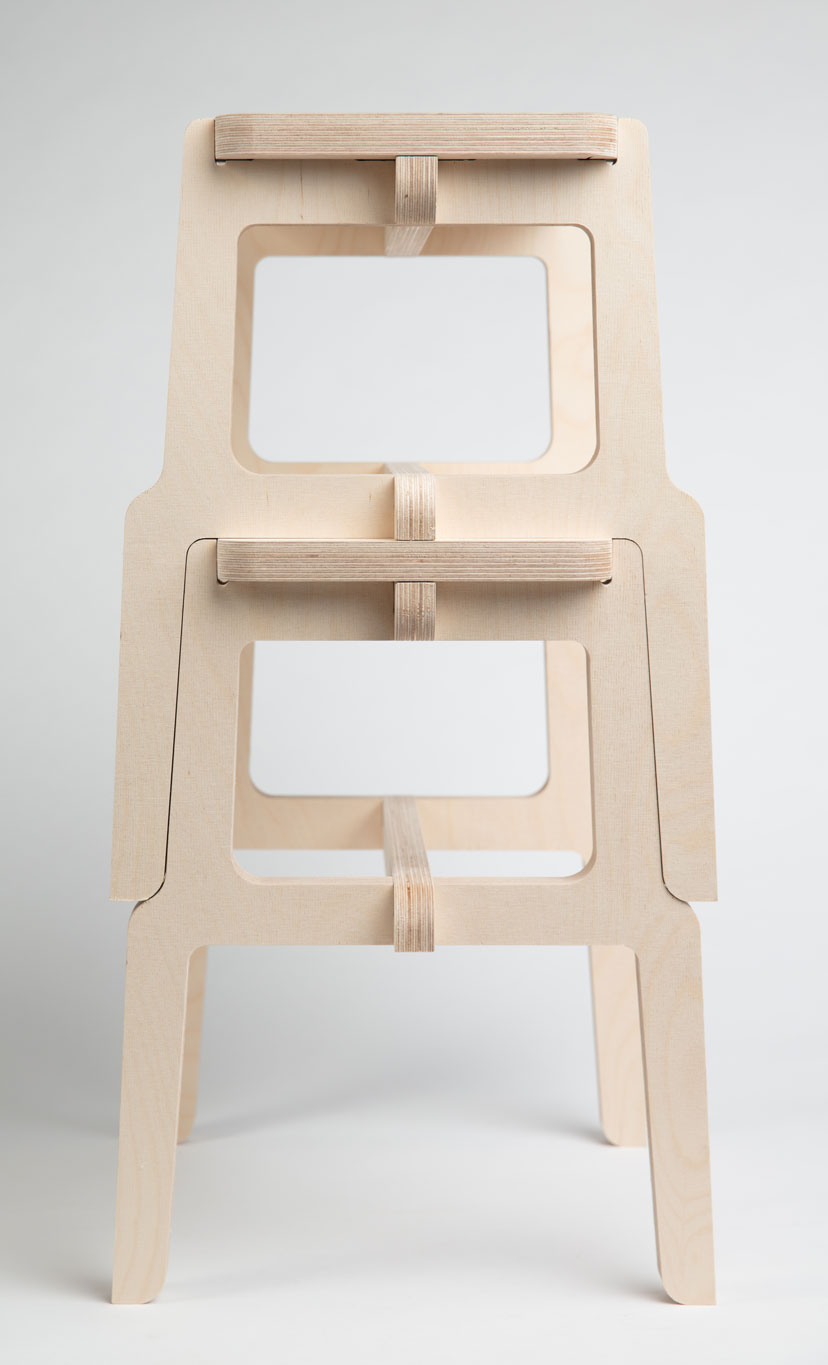
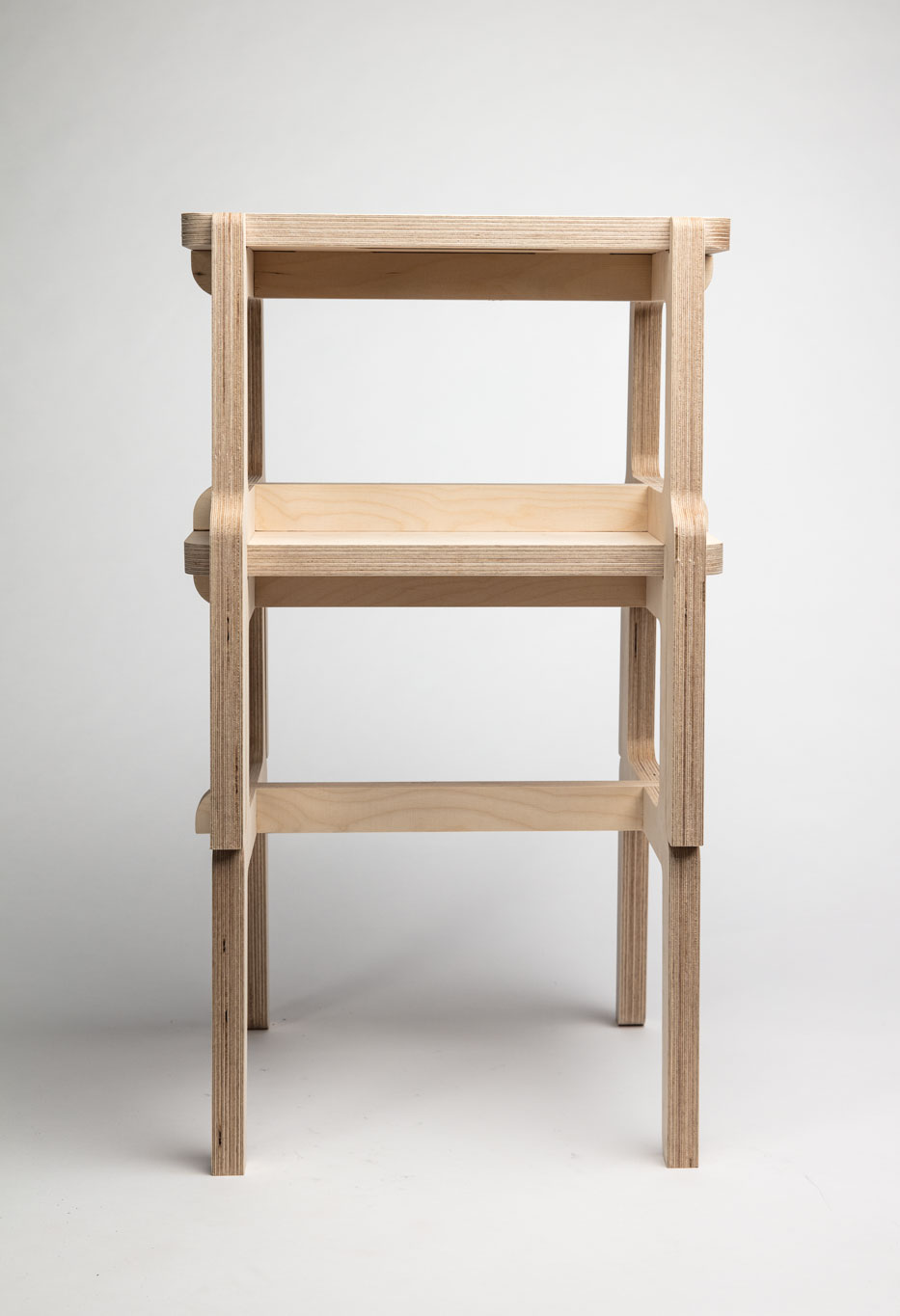
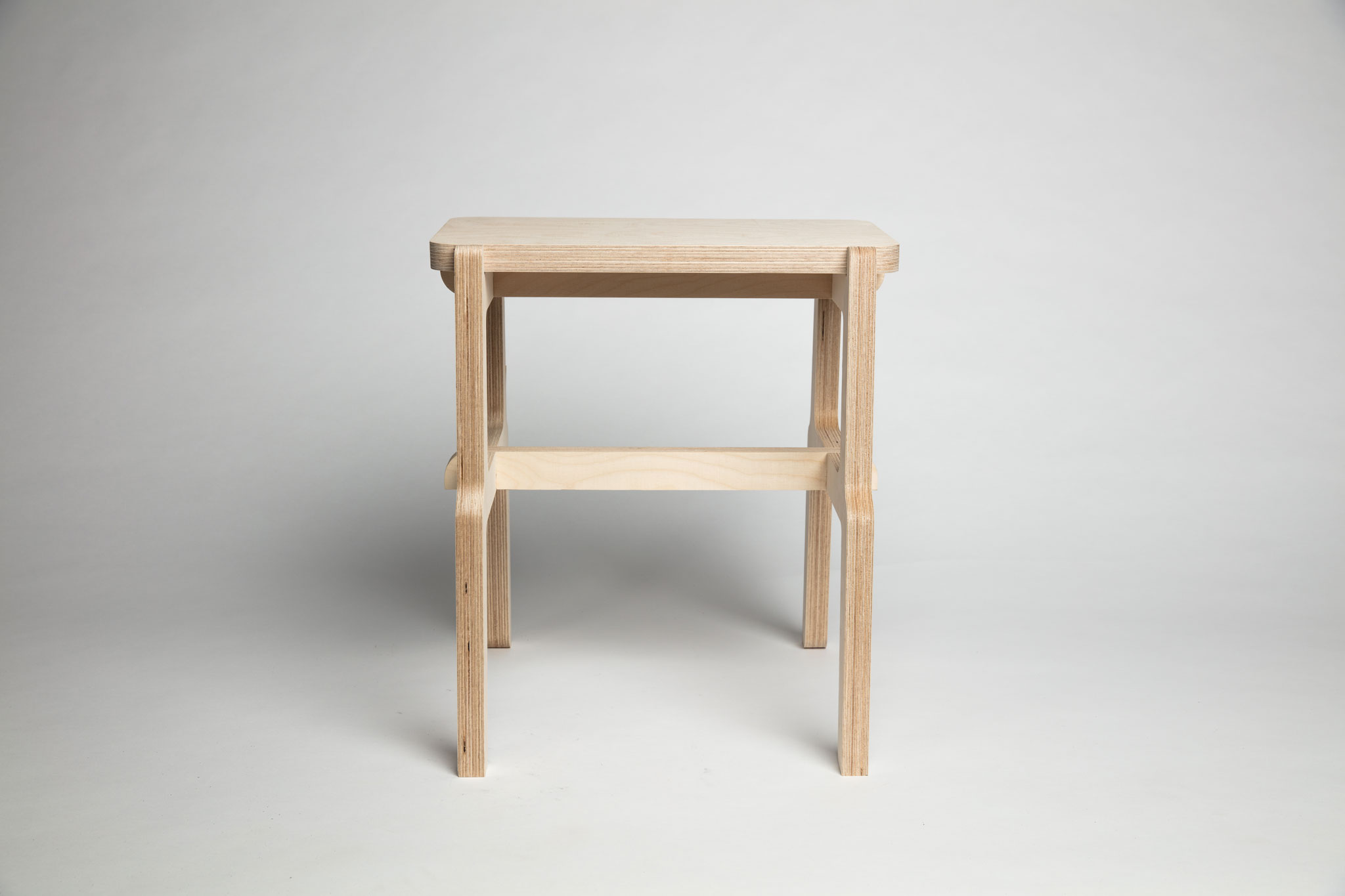
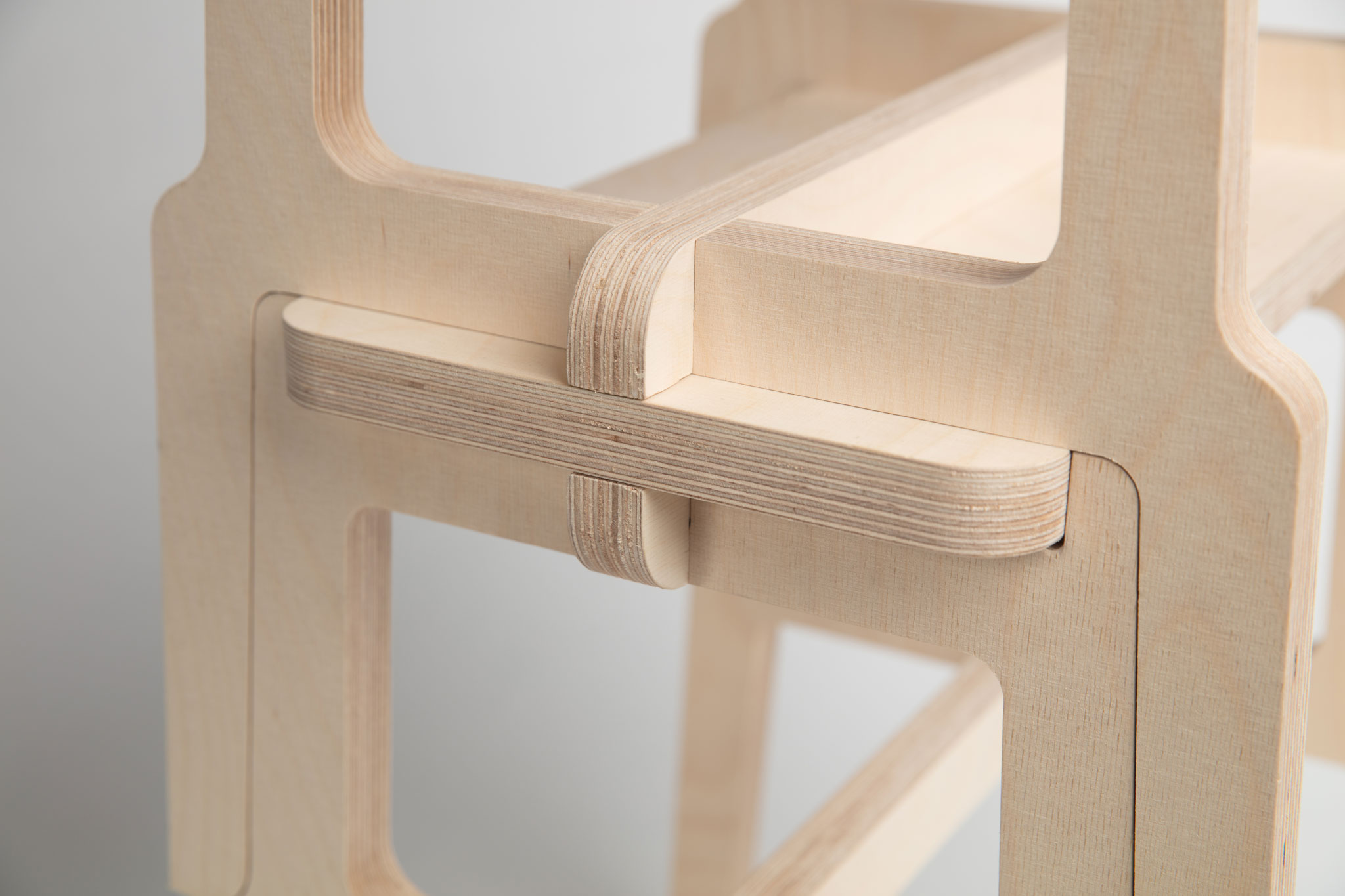
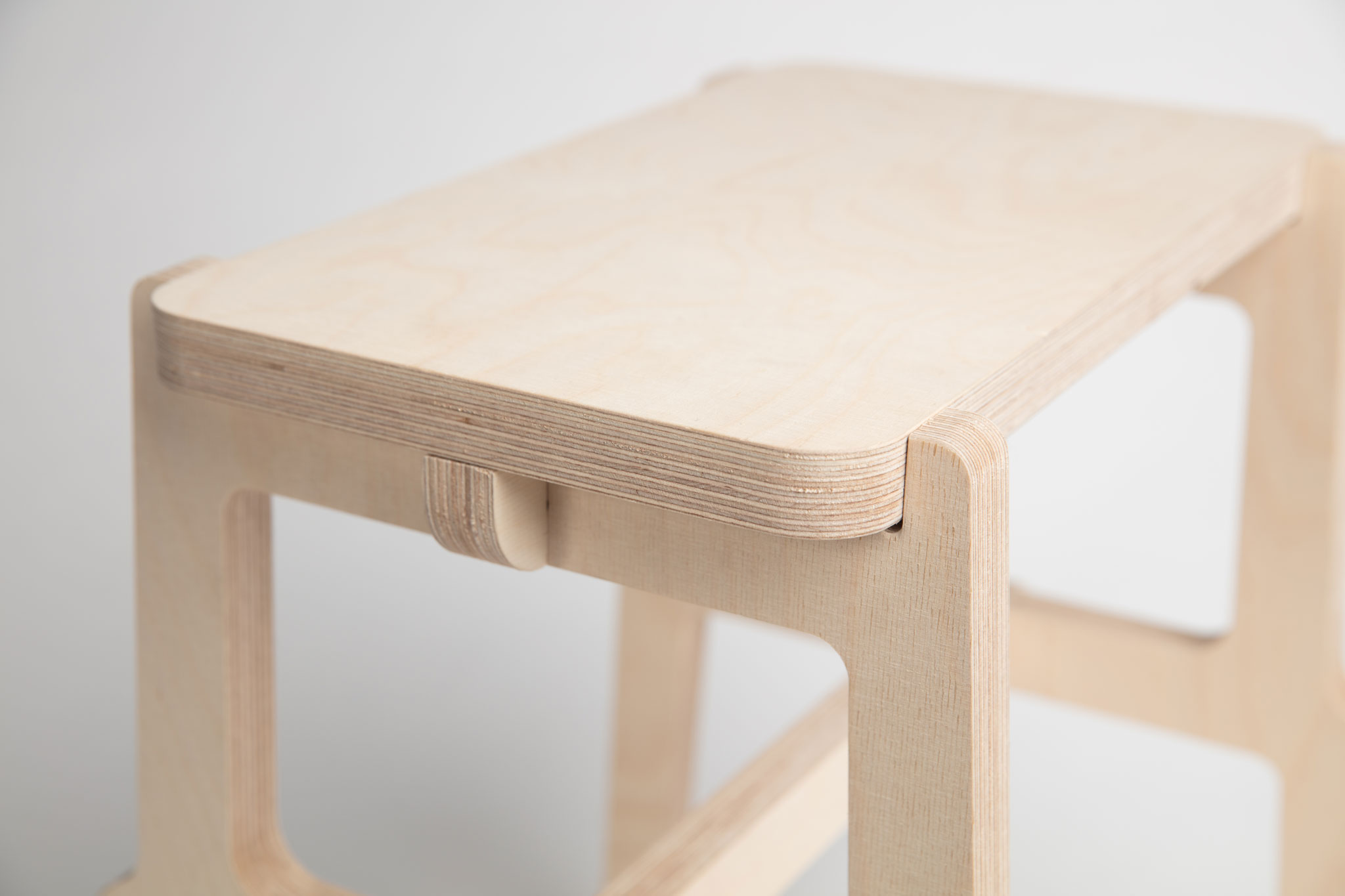
design in a social context
The digital transformation has greatly influenced our private and professional lives in recent decades.
Our communication, daily routines and fundamental features of our work have revolutionized this. Equally, this opens up new perspectives for the professional field of the designer: While once rarity and uniqueness were the assessment standards for the quality of a product, many various aspects are currently opening up, considering the digitally networked society.
The demand for a high-quality design is no longer unexceptional based on a draft and the production of an identical origin respectively the exquisite customer base, which may come to enjoy such. Equally elemental is the free accessibility and sustainability of a design, which is reaching a valuable milestone through advancing digitalization and increases in open source content.
The project presented is based on the theme „Design in a Social Context“ and shows how a sustainable triad of ecological, economic and social components can be achieved through open handling of design drafts.
perceptions
A seat furniture item can pursue different intentions and aims with its performance purpose as a seat opportunity.
Diverse types of arrangement generate just as diverse discussion cultures: a chair circle with its democratic character promotes communication and interaction, while a parliamentary assembly can provide a stage for a presenter.
These different regulations of a room should be considered in a piece of seat furniture item. A stool, due to its characteristics, takes these requirements into account and can create a place where teamwork and flexibility are elementary components of projects.
digital production
With the provision of a CAD file, it is possible to cooperate with every workshop. The data record is checked and translated into the milling program.
At this point, the user becomes part of the production process.
Afterwards, the plate dimension is checked. This can lead to differences in the plate thickness. Since the stool is based on connectors, the file must be adjusted to the panel thickness. After approximation of the plate dimensions milling can be done.
local production
By reducing to two milling axes, production is possible with any cnc milling machine. This offers not only time – but also cost savings.
Recourse to a local production site is also a social unique selling point in view of the increasing mass production.
independent post processing
The design is as simple as possible for further processing. After milling, only the parts need to be ground. This is the only postprocessing process required. In the course of sustainable production, the longevity of a product is fundamental, which is why the parts can be optionally oiled and glued together.
connector
In the last production step, the individual parts can be assembled intuitively via plug-in tunnels.
By eliminating screw or dowel joints, the section connections are easy to solve. The exact milling of the sections guaranteed a stable and fixed construction.
accessibility and sustainability
The draft, which is provided via open source software, is intended to give consumers access to their independent production.
By orienting to international standards in the choice of material dimensions and the associated design orientation, there are many advantages in terms of production: The stool can be produced cost-effectively and in cooperation with local workshops in a material-saving, location-independent and transport-free manner.
Thus, an economic, ecological and social sustainability is guaranteed.
A design product such as the presented stool can not only promote a certain culture through its characteristics as a flexible seating element: Due to our digitally networked society and the open source provision of all production parameters, an accessible and sustainable product can be created for everyone. Social interaction can therefore happen on different levels and even start with the production.
